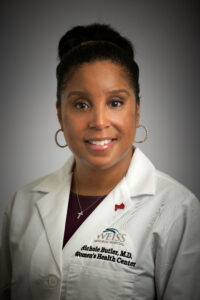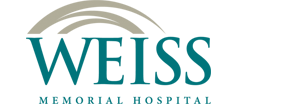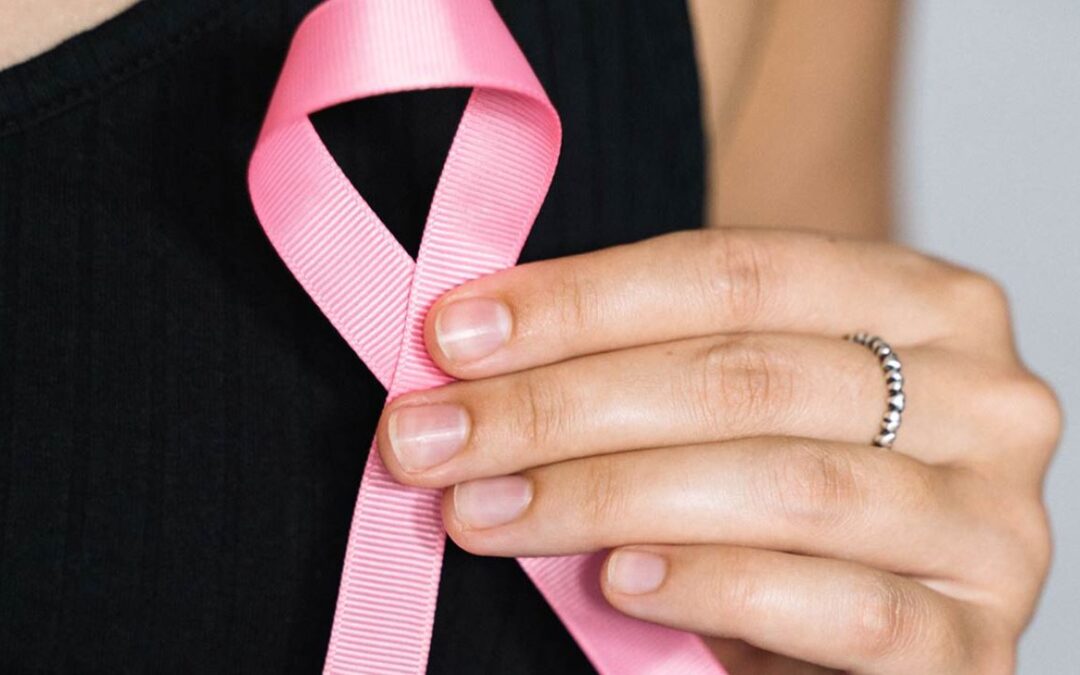Breast cancer is the second leading cause of death among women after lung cancer, according to the American Cancer Society—but women have opportunities to decrease their risk.
Each October, Breast Cancer Awareness Month provides an opportunity to build awareness about this prevalent disease and the importance of early detection and quality care.
While many risk factors cannot be changed, such as being a woman, aging, and heredity, there are modifiable risk factors that are impacted by lifestyle choices. Knowing which risk factors are changeable can empower women to live healthier lives and reduce their risk for developing breast cancer.
 “Knowledge brings power,” said Senior Gynecologist Nichole Butler, M.D. “It’s vitally important for women to be educated about their cancer risks. Especially those risks that can be modified.”
“Knowledge brings power,” said Senior Gynecologist Nichole Butler, M.D. “It’s vitally important for women to be educated about their cancer risks. Especially those risks that can be modified.”
Dr. Butler is a board-certified gynecologist with the Women’s Health Center at Weiss Memorial Hospital. While her focus is gynecology, she looks at the whole picture of women’s health. She helps her patients become breast aware and reinforces the importance of wellness exams.
In recognition of Breast Cancer Month, Dr. Butler shares helpful information about breast cancer risk and early detection in the Q & A below.
What can I do to reduce my risk for breast cancer?
One of the most important steps a woman can take to reduce her risk of breast cancer is to maintain a healthy lifestyle.
Being overweight or obese, and not physically active, increases breast cancer risk.
Regular physical activity is shown to reduce breast cancer risk, especially in women who are post-menopausal. The American Cancer Society recommends adults get 150-300 minutes of moderate to vigorous activity each week.
While the link between diet and breast cancer is unclear at this time, eating a low-fat diet including fruits and vegetables and limiting red meat and processed meat, is linked to a lowered risk of other types of cancers.
It’s also important to limit alcohol. Consuming two or three alcoholic beverages a day increases a woman’s breast cancer risk by 20 percent, according to the American Cancer Society.
Do contraceptives and/or hormone replacement therapy impact my risk for breast cancer?
Research shows the risk of breast cancer for those using oral contraceptive pills is low. The slight increase in risk must be weighed against the benefits of hormonal contraceptives that include decreased risk of endometrial and ovarian cancer.
Hormone replacement therapy (HRT) is used to ease menopause symptoms. There is a slight increase in breast cancer risk associated with the use of combination HRT that includes both estrogen and progesterone. While estrogen-only HRT is not linked to a higher risk of breast cancer at this time, it is important to note there is a possible link to increased risk of ovarian cancer.
Does the age of first period and later menopause affect breast cancer risk?
Women who start their menstrual periods early, typically before age 12, or who experience menopause after age 55, have an increased risk for breast cancer. This increased risk is the result of prolonged exposure to estrogen and progesterone over their lifetime.
Does having a baby reduce risk of breast cancer?
A woman’s reproductive history impacts her risk for breast cancer. Having a baby before age 35 decreases the risk of breast cancer compared to women who never gave birth. Delivering a baby after age 35, however, slightly increases the risk of breast cancer compared to those who never gave birth.
Breastfeeding has been shown to lower the risk of breast cancer. This is due possibly because breastfeeding reduces the number of menstrual cycles over a lifetime, just as late onset of initial menstrual cycle and early menopause might.
What are the signs and symptoms of breast cancer?
It is very important for a woman to know what is normal for her. Being aware of even the slightest breast change can assist in early detection of breast cancer.
While performing a breast exam, look for any changes in appearance, such as swelling in the breast or under the arm, skin dimpling, or nipple changes or discharge. Any new symptoms, new lumps, or tender or painful areas should be evaluated by a doctor.
What are the most important breast cancer screening tests and when should I get them?
In addition to performing monthly self-breast exams, women should see their gynecologist to receive a breast exam as part of a regular gynecological exam. New breast symptoms should be evaluated promptly so that diagnostic tests can be ordered if needed.
Screening tests are determined by your gynecologist or healthcare provider, and are based on age, family history, and risk factors. These screening tools include mammogram, ultrasound, and breast MRI.
For women with a strong family history of breast cancer, genetic testing can determine if they have an inherited gene mutation in the BRCA1 and BRCA2 genes, indicating they are at a higher risk of getting breast cancer.

